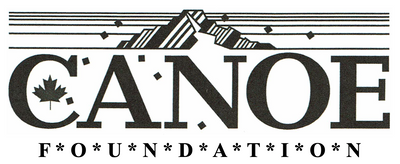You cannot get through a single day without having an impact on the world around you.
What you do makes a difference, and you have to decide what kind of difference you want to make. – Jane Goodall
How do we settlers evolve our perspective, understanding and relationship with the planet? We have been taught to see the earth as an asset to be exploited…there is no gratitude for that which the earth provides…commodities we call them…or products…we show little respect…most of us take as much as we can with no thought or concern for the future. How do we develop a culture of gratitude and cast off the culture of greed and indifference?
I have been reading the thoughtful book ‘The Seviceberry: Abundance and Reciprocity in the Natural World’ by Robin Wall Kimmerer, who is a Potawatomi botanist, author, and the director of the Center for Native Peoples and the Environment at the State University of New York College of Environmental Science and Forestry.
It has challenged me to question the ethics and values that I have accepted all my life in terms of how I relate to the earth…to nature…it has given me a new awakening…a new vision…a new understanding of our place on this planet that we all know as home. We are stewards, not owners of this home. Our job is to leave it better than we found it. After all, We Are Nature.
We at Canoe Foundation take note of the incredible work being done by related organizations such as the David Suzuki Foundation, Green Peace, RavenTrust, Dogwood, Leadnow, The Narwhal, Ecojustice, Indigenous Climate Action and many more. What we work for is that Canada takes bold climate action and prioritizes life, health, nature and an inclusive, sustainable future for all.
Leaders need to answer to the public. And they need to know how important it is to cherish our natural world in this difficult time. We need our decision makers, government and otherwise, to stop implementing policies and projects that put young peoples’ futures at risk. What would Canada look like if our political decisions were made for our grandkids and not the financial elites?
We see the retrenchment that is happening south of the border in terms of climate action, which provides Canada with the opportunity to seize the future and to implement progressive policies such as:
-Reaching 100% clean energy by 2035
-Promote renewable power for all
-Cap fossil fuel emissions
-Secure methane regulations
-End Fossil fuel financing
-Reduce plastic pollution by reducing plastic production
-Support workers and communities in the shift to a low-carbon economy
-Address the affordability and climate crisis simultaneously
-Support Indigenous climate action while working on reconciliation for historical and ongoing injustices
The future is better for every generation when we take care of the environment and each other. Climate solutions and nature protection offer benefits for all Canadians: cleaner air and water, better health, resilient communities and more jobs and investment opportunities.
“The climate crisis is both the easiest and the hardest issue we have ever faced. The easiest because we know what we must do.” — Greta Thunberg
Most of us understand that there are many steps that we each can make to minimize our personal carbon footprint, and we are, but perhaps what we really need to do is to better understand the ongoing damage being done to our planet Earth by the economic system we have grown up with. Inside the cover of The Serviceberry, it says that ‘Our economy is rooted in scarcity, competition and the hoarding of resources and we have surrendered our values to a system that actively harms what we love’.
As renowned Indigenous Canadian architect Douglas Cardinal said:
‘Before the Europeans came and imposed their “market economy” on this land, the Indigenous peoples had adopted the maternal economy, the “gift economy” based on loving and caring for each other. This was the basis of communication, language and trade. Status in the Indigenous cultures depended not on how many resources one acquired and kept; on the contrary, status depended on how much one could give to others.’
What a unique perspective for those of us who were never exposed to such a novel concept. I’ll explore more about what I’m learning about this ‘gift economy’ and my reforming perspective and relationship with Mother Nature and the Earth, in the next blog.
Check out our fundraising initiative the Paddle Project which allows us to continue our advocacy for Indigenous climate action: Our Paddles - Canoe Foundation





